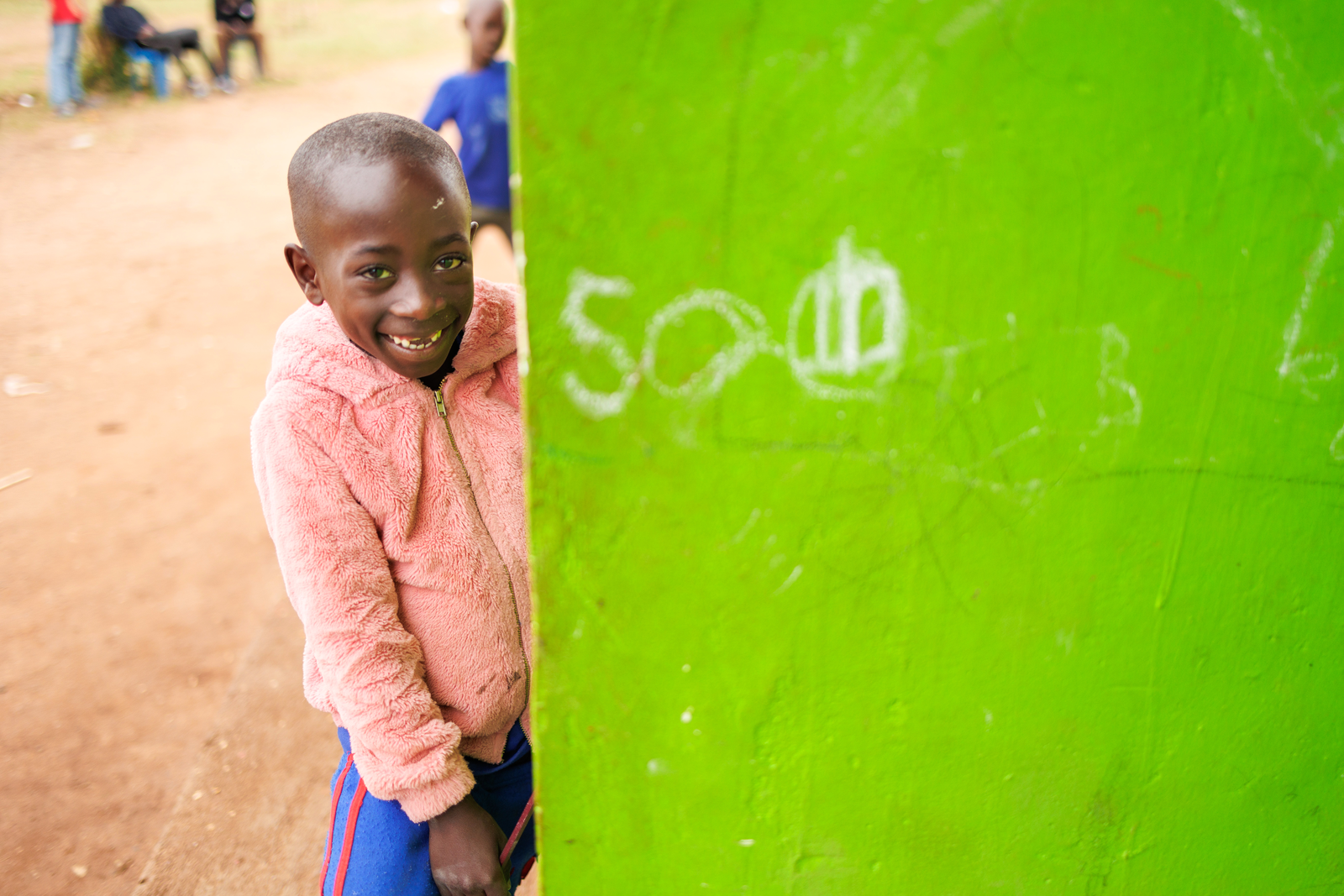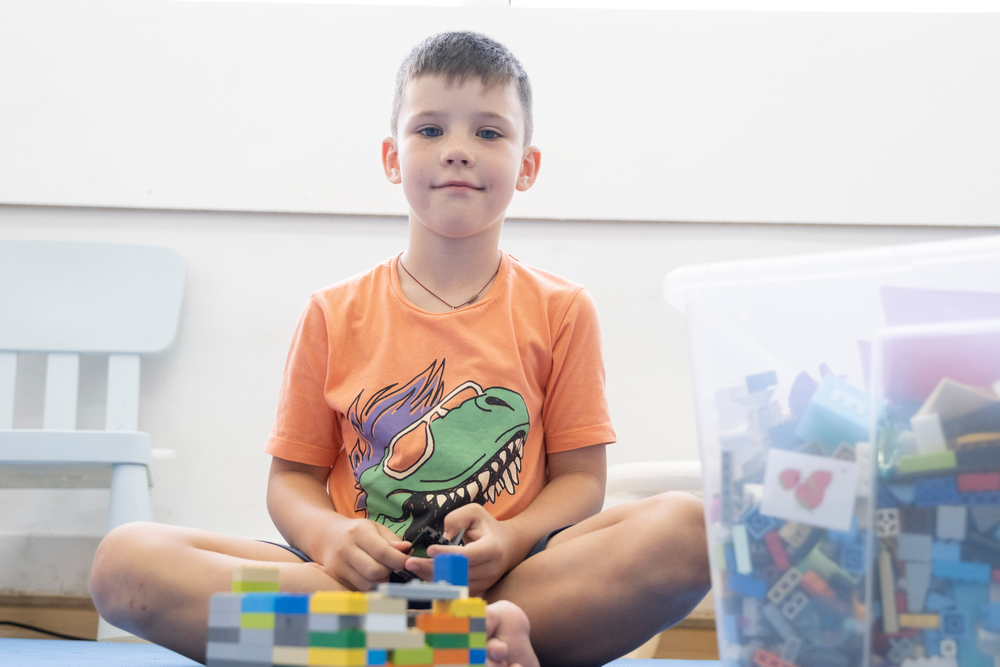
ICT Corners help refugee children take education courses and keep in touch with their families
Education in emergencies, Refugees and internally displaced people, Technology and education
Children in Serbia can start a course in any of the "mobile classrooms" and finish it at the next one along their route as they travel in Europe.
Hundreds of refugee children in Serbia are being offered digital education so they can stay connected with their families as they make treacherous journeys across Europe.
The project by SOS Children’s Villages offers children free wifi, access to computers and a safe place to charge their mobile phones.
The charity set up ICT (Information Communication Technology) Corners in Serbia and Macedonia as part of its emergency response to help refugees fleeing to Western Europe.
At the height of the refugee crisis two years ago, more than 150,000 people used the ICT Corners in just four months.
SOS Children’s Villages provides education and protection for children without parental care in 135 countries. In its work with refugee children, the charity helps unaccompanied children and families to stay together or reunite, when this is in the best interest of the child.
ICT Corners is still providing a vital service at SOS reception centres in Serbia but the Macedonia project has now ended.
There are seven reception centres in Serbia, offering access to computers at five ICT Corners. These mobile container units can be set up quickly in an emergency situation and they offer free wifi, computers, scanners and charging stations for phones and other devices.
The charity says ICT Corners help prevent family separation and increase people’s resilience when they are living through emergencies.
The hubs are, in effect, “mobile classrooms” so that when refugees move on from Serbia – to Hungary for example – they can continue with their course.
The focus is always on the care and protection of children as well as keeping families together - getting children who are separated back together with their families. Tim Spence, Emergency Communications Officer, SOS Children’s Villages
The children can start any course anywhere in one of the ICT Corners and finish it at the next one along their route. They will then have a certificate to use, plus IT skills and languages.
Tim Spence, Emergency Communications Officer with SOS Children’s Villages, said refugee children can become separated from their families in different ways.
He added: “Our work with refugees and migrant children is grounded in our nearly 70 years of experience providing care and protection for children without parental care or at risk of losing it.
“We work with displaced children in countries of origin, in countries of first refuge, during their journey to safety and where they are finding new homes.
“Children can become separated from families for a number of reasons. Some families send their children first then follow them, for example.
“Some teenagers travel alone and children can become separated by people smugglers. We set up the ICT Corners so children have a place to go for Skype and other ways to contact their family members.
“The project in Macedonia ended at the end of 2017. Serbia continues. We have 1200 refugee children in Serbia.
“At the end of 2017 we had emergency projects in 26 countries. The focus is always on the care and protection of children as well as keeping families together – getting children who are separated back together with their families.
“In many of these emergencies – especially where there are refugees – and there’s limited access to schooling, or where schools are damaged, we offer support for education.
“We’re not in the business of replacing public schools – we help children until they can be returned to education.
“Generally, we have child-friendly spaces which are protected areas, serving as a hub for many of our services – psychological care, educational services and medical referrals.”
The reception centres also host improvised classrooms for children from grades one to four, lessons in English, German and Serbian, as well as art therapy.
In addition, SOS staff offer psychosocial support, family counselling and consultancy for unaccompanied minors, as well as handing out hygiene products and more.
A main challenge is the different languages spoken by people passing through the reception centres. At any one time, there may be refugees from Pakistan, Afghanistan, Iraq, Syria, Morocco and Algeria – and as far as Cuba – in one reception centre.
SOS Children’s Villages has been working in Serbia since the 1970s. Its work began near the northern town of Novi Sad and in 2003 the organisation began working in central Serbia, near Kraljevo.
The charity helps refugee children elsewhere in Europe and in many nations across the world. For example, it currently cares for around 300 of the 3300 unaccompanied children living in Austria through small group homes, semi-independent living, foster care, and integration and education programmes.
In Finland, it has provided support to unaccompanied children, including accommodation, psychological support and vocational training.
In Greece, more than 250 unaccompanied children have been helped since the refugee emergency response programme started in 2015.
In Nigeria, the charity runs kindergartens and primary schools in Abuja, Isolo, Jos and Owu-Ijebu. Children from the local community attend alongside children in the care of SOS Children’s Villages. In Abuja, it offers secondary school education and over 930 children benefit from its educational services throughout the country.

More news

Theirworld’s mission to give children in crises a safe place to learn
